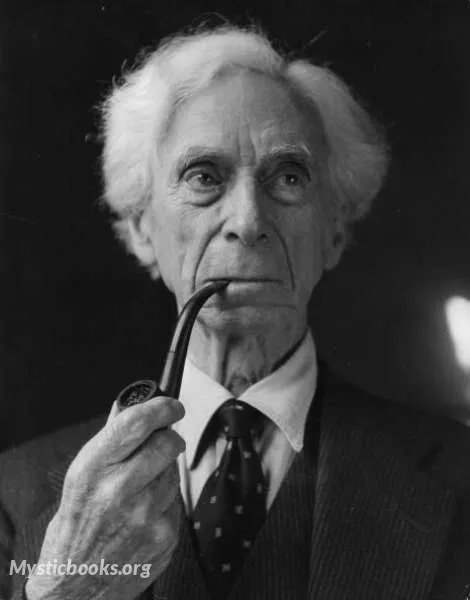
Timeline
Title
Country/Nationality
Bertrand Russell
Bertrand Arthur William Russell, 3rd Earl Russell was a British polymath, philosopher, logician, mathematician, historian, writer, social critic, political activist, and Nobel laureate. Throughout his life, Russell considered himself a liberal, a socialist and a pacifist, although he sometimes suggested that his sceptical nature had led him to feel that he had "never been any of these things, in any profound sense". Russell was born in Monmouthshire into one of the most prominent aristocratic families in the United Kingdom.
In the early 20th century, Russell led the British "revolt against idealism". He is considered one of the founders of analytic philosophy along with his predecessor Gottlob Frege, colleague G. E. Moore and protégé Ludwig Wittgenstein. He is widely held to be one of the 20th century's premier logicians. With A. N. Whitehead he wrote Principia Mathematica, an attempt to create a logical basis for mathematics, the quintessential work of classical logic. His philosophical essay "On Denoting" has been considered a "paradigm of philosophy". His work has had a considerable influence on mathematics, logic, set theory, linguistics, artificial intelligence, cognitive science, computer science and philosophy, especially the philosophy of language, epistemology and metaphysics.
Russell was a prominent anti-war activist, championed anti-imperialism, and chaired the India League. Occasionally, he advocated preventive nuclear war, before the opportunity provided by the atomic monopoly had passed and he decided he would "welcome with enthusiasm" world government. He went to prison for his pacifism during World War I. Later, Russell concluded that the war against Adolf Hitler's Nazi Germany was a necessary "lesser of two evils" and also criticised Stalinist totalitarianism, condemned the involvement of the United States in the Vietnam War and was an outspoken proponent of nuclear disarmament. In 1950, Russell was awarded the Nobel Prize in Literature "in recognition of his varied and significant writings in which he champions humanitarian ideals and freedom of thought".
Books by Bertrand Russell

The Problems of Philosophy
The Problems of Philosophy is a 1912 book by the philosopher Bertrand Russell, in which the author attempts to create a brief and accessible guide to the problems of philosophy. He introduces philosophy as a repeating series of (failed) attempts to a...
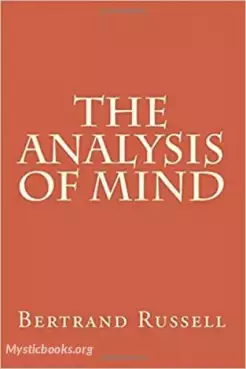
The Analysis of Mind
A neat work on philosophy of mind by the 20th century analytic philosopher Bertrand Russell.

Proposed Roads to Freedom
Bertrand Russell, 3rd Earl Russell (1872 – 1970) was a British philosopher, logician, mathematician, political activist and Nobel laureate. He led the British "revolt against idealism" in the early 1900s and is considered one of the founders of analy...
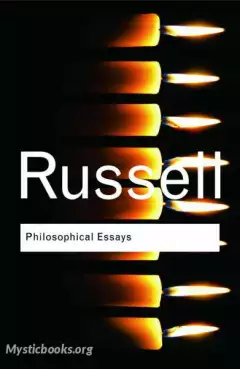
Philosophical Essays
Six out of seven essays appearing here were reprinted from other publications; indeed, this 1910 collection went out of print, so that two of the essays occurring here were reprinted in Russell's 1917 "Mysticism and Logic, and Other Essays". Nonethel...
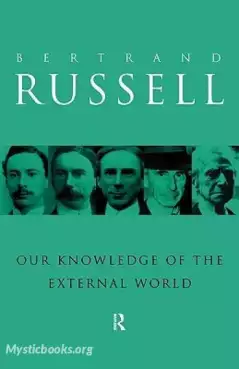
Our Knowledge of the External World
Bertrand Russell gave the Lowell Lectures in March and April of 1914; these lectures produced 'Our Knowledge of the External World'. Russell attempts to analyze the relationship of the crude data of our senses to the notions of physics such as space,...
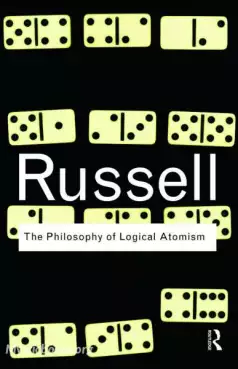
The Philosophy of Logical Atomism
'The Philosophy of Logical Atomism' is a series of lectures by Bertrand Russell (1872-1970) that touches on numerous topics, including the nature of propositions, the relations of propositions to facts and of different types of words to the varieties...
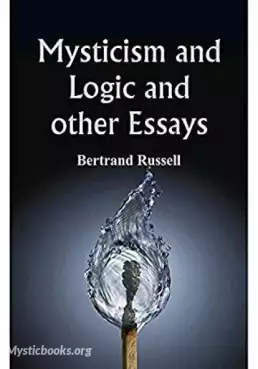
Mysticism and Logic and Other Essays
This anthology collects a number of fascinating strands of Bertrand Russell's thought. "Mathematics and the Metaphysicians" details the impact of the 1900 World Congress of Philosophers on Russell's development and the hope that new methods in mathem...

Political Ideals
This is a book by the famous 20th century British philosopher Bertrand Russell on Political Ideals. It was written during the course of World War 1 and contains a critique on the politico economic situation of then Europe. What is interesting is that...

The Problem of China
Russell provides a picture of European and American colonialism in China specifically and Asia in general, as well as the roles of Japan and Russia.
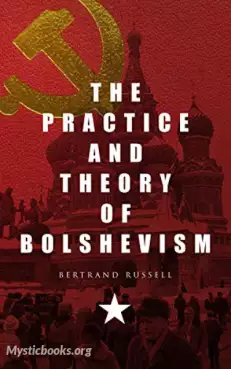
The Practice and Theory of Bolshevism
This book records Bertrand Russell's impressions of the new regime after a 1920 visit to Russia following the 1917 Bolshevik Revolution, including his meetings with Lenin, Trostky, and Gorky. It includes a chapter that was authored by Dora Black, edu...

The ABC of Atoms
A short introductory book about atoms, subatomic particles and new (at that time) physics theories.
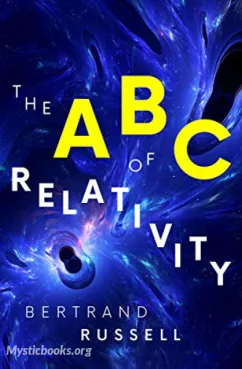
The ABC of Relativity
It provides an accessible introduction to the complex concepts of relativity theory, which revolutionized our understanding of space, time, and the nature of the universe. In this book, Russell takes readers on a journey through the key ideas of rel...
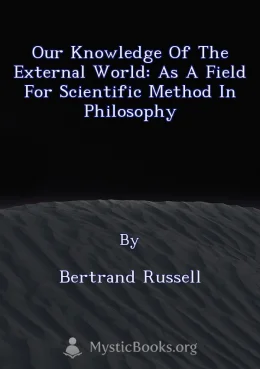
Our Knowledge of the External World: As a Field for Scientific Method in Philosophy
Bertrand Russell's 'Our Knowledge of the External World' delves into the intricate relationship between our sensory experiences and the scientific concepts that shape our understanding of the external world. Through rigorous logical analysis, Russell...
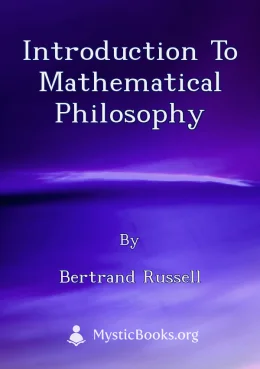
Introduction to Mathematical Philosophy
Bertrand Russell's *Introduction to Mathematical Philosophy* provides a clear and accessible exploration of the fundamental principles and problems of mathematics. Written in a style that is both rigorous and engaging, the book delves into topics suc...
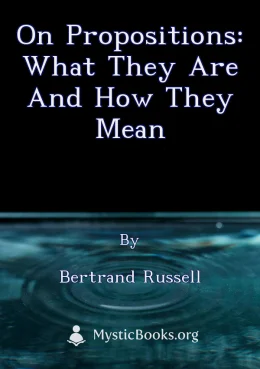
On Propositions: What They Are and How They Mean
In 'On Propositions', Bertrand Russell explores the nature of propositions and their role in conveying meaning. He delves into the philosophical underpinnings of propositions, examining their relationship to the mind, language, and the world. Russell...
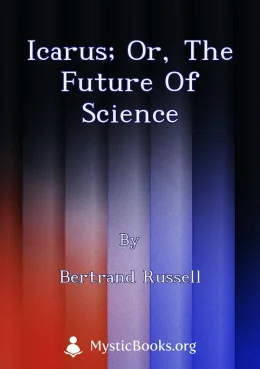
Icarus; or, The Future of Science
In "Icarus; or, The Future of Science," Bertrand Russell explores the potential consequences of scientific advancement on various aspects of human life. He delves into the potential impact of scientific progress on society, ethics, and even human na...
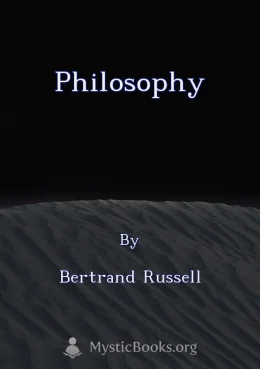
Philosophy
Bertrand Russell's "Philosophy" is a comprehensive exploration of key philosophical concepts, presented in his characteristically lucid and engaging style. The book delves into topics like knowledge, logic, and the nature of reality, challenging trad...